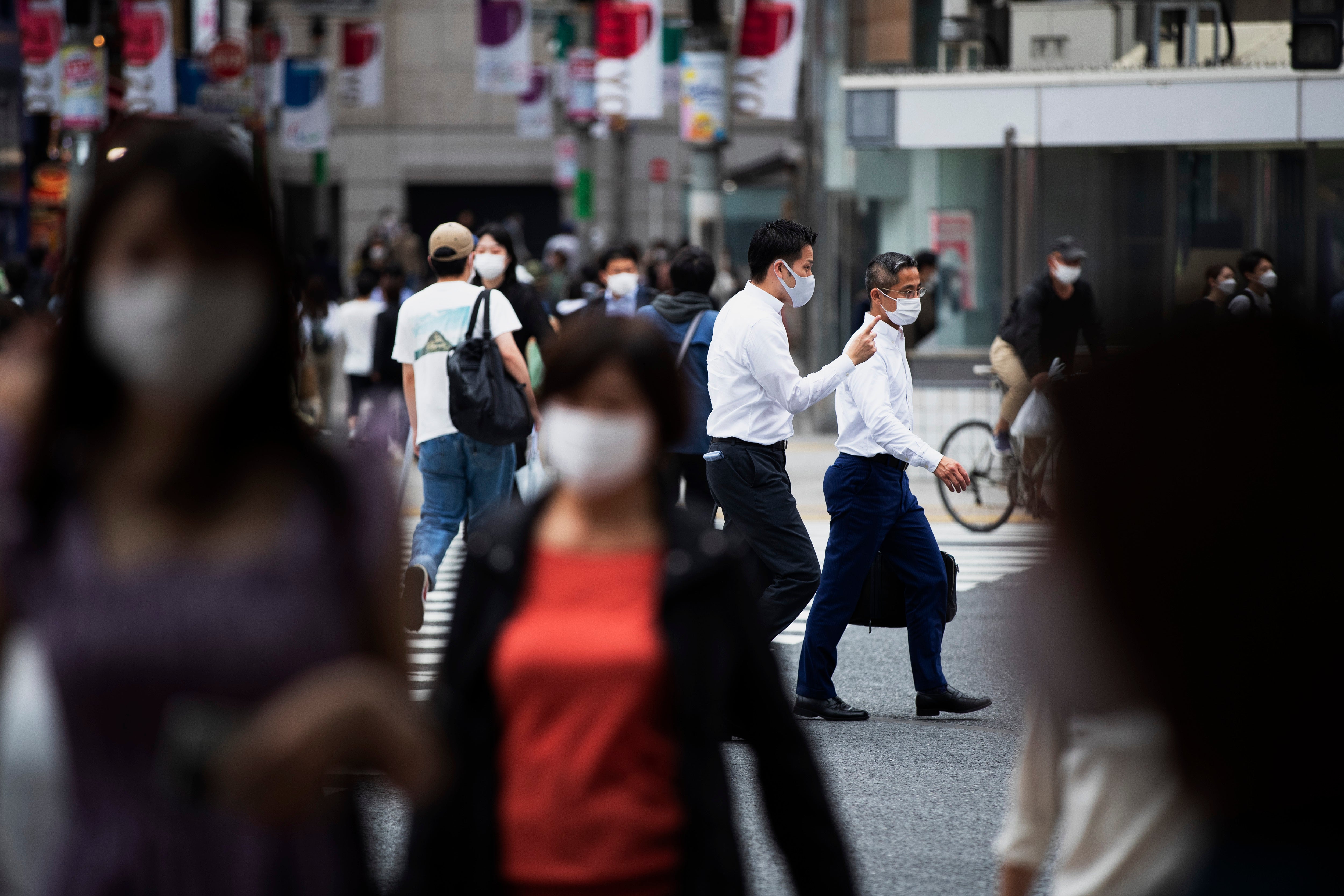The Latest: Taiwan's worst outbreak of the pandemic grows
Taiwan’s worst outbreak of the COVID-19 pandemic has grown, with a worrisome 63 new cases not having a clear connection to existing cases

Your support helps us to tell the story
From reproductive rights to climate change to Big Tech, The Independent is on the ground when the story is developing. Whether it's investigating the financials of Elon Musk's pro-Trump PAC or producing our latest documentary, 'The A Word', which shines a light on the American women fighting for reproductive rights, we know how important it is to parse out the facts from the messaging.
At such a critical moment in US history, we need reporters on the ground. Your donation allows us to keep sending journalists to speak to both sides of the story.
The Independent is trusted by Americans across the entire political spectrum. And unlike many other quality news outlets, we choose not to lock Americans out of our reporting and analysis with paywalls. We believe quality journalism should be available to everyone, paid for by those who can afford it.
Your support makes all the difference.TAIPEI, Taiwan — Taiwan's worst outbreak of the COVID-19 pandemic grew Thursday, with a worrisome 63 new cases not having a clear connection to existing cases.
The island raised its alert level this week, banning indoor gatherings of more than five people and outdoor gatherings of more than 10 people. Schools are shut for two weeks, and many people are working from home.
The majority of the cases in the latest outbreak have been discovered in the capital, Taipei and neighboring New Taipei.
The island overall reported 286 new cases on Thursday that were transmitted domestically and more than 600,000 people are in quarantine because they were exposed to someone who was infected.
In the last week, the island has recorded more than 1,000 cases alone, accounting for more than a third of its pandemic total of 2,825.
Most cases last year were among travelers, and the island was hailed for its success in keeping out the virus, through robust public health measures like quarantines and contact tracing.
___
THE VIRUS OUTBREAK:
— China says it's providing vaccines to almost 40 African nations, where vaccinations have lagged significantly
— War, blockade leave Gaza Strip’s cripple health system unable to test for virus or vaccinate people
— Whether you still need to wear a mask depends mostly on whether or not you’re vaccinated.
— Art Basel Hong Kong returns after pandemic hiatus
— Follow more of AP’s pandemic coverage at https://apnews.com/hub/coronavirus-pandemic and https://apnews.com/hub/coronavirus-vaccine
___
HERE'S WHAT ELSE IS HAPPENING:
COLOMBO, Sri Lanka — Sri Lanka will halt inbound passengers at all airports for 10 days starting Friday amid a COVID-19 surge.
Departures will be allowed, and passengers transiting for less than 12 hours with a confirmed ticket to an onward destination are also allowed.
The Civil Aviation Authority of Sri Lanka will also allow emergency diversions, freight operations and humanitarian flights from May 21-31.
The restrictions come amid a spike of infections and deaths since last month. The island nation has reported 1,015 deaths in total and 142,746 people infected as of Wednesday.
Health officials are attributing the current surge to people joining celebrations and shopping last month to mark the traditional new year.
___
UNITED NATIONS — The U.N. Security Council is calling for accelerated availability of coronavirus vaccines for Africa, expressing concern the continent has received only about 2% of all vaccines administered globally.
A presidential statement approved by all 15 members at a council meeting Wednesday on promoting post-pandemic recovery in Africa and addressing the root causes of conflict on the continent reiterated the need for “equitable access to quality, safe, efficacious, and affordable COVID-19 diagnostics, therapeutics, medicines and vaccinations to all.”
It calls for “increased and accelerated donation of safe and effective vaccine doses from developed economies” and others with supplies to African countries in need, especially through the World Health Organization’s ACT-Accelerator program, which includes the COVAX facility to buy and deliver vaccines for the world’s poorest countries.
The council acknowledged ongoing discussions on waiving intellectual property protections for COVID-19 vaccines aimed at providing vaccinations to Africans and all others in need.
___
BOSTON — Research from 280 nursing homes in 21 states across the U.S. gives a real-world look at how well COVID-19 vaccines are protecting residents who did and did not get the shots.
About 1% of residents tested positive for the virus within two weeks of receiving their second dose, and only 0.3% did more than two weeks after being fully vaccinated, researchers from Brown University and the Genesis HealthCare network reported Wednesday in the New England Journal of Medicine.
Most of the cases did not produce any symptoms.
The shots also seemed to help protect unvaccinated residents: Cases dropped from 4.3% within two weeks of the first vaccination clinic to 0.3% more than 42 days after the event among folks who had not received either the Pfizer or Moderna vaccine.
___
WASHINGTON — House Democrats investigating a contractor the Trump administration hired to help make coronavirus vaccines blasted the company’s officials for not correcting serious deficiencies that resulted in millions of ruined Johnson & Johnson doses.
During Wednesday’s joint hearing by two House committees investigating Emergent BioSolutions’ failures under a no-bid, $628 million contract, Emergent Chief Executive Robert Kramer revealed that last year, multiple batches of another COVID-19 vaccine, being made at the same Baltimore factory for AstraZeneca, also were contaminated.
Emergent has received more than $271 million but hasn’t produced any doses that could be distributed.
The company was handed the contract in May 2020, despite multiple Food and Drug Administration inspections documenting poor quality controls and inadequate strategy for preventing contamination. Despite FDA warnings, Emergent didn’t correct those problems, leading to contamination of about 15 million J&J doses since discarded. More than 100 million additional J&J doses are undergoing FDA safety testing.